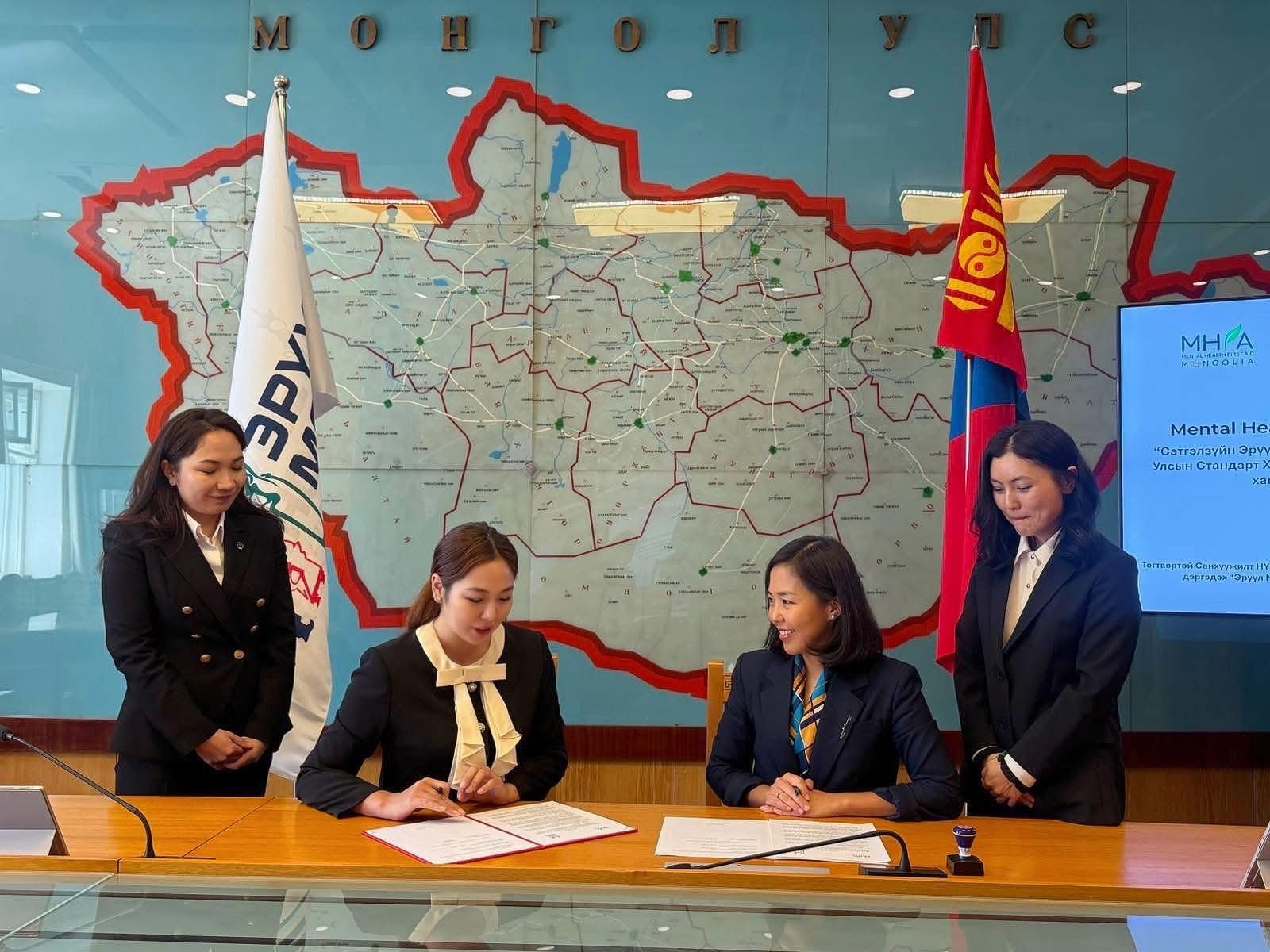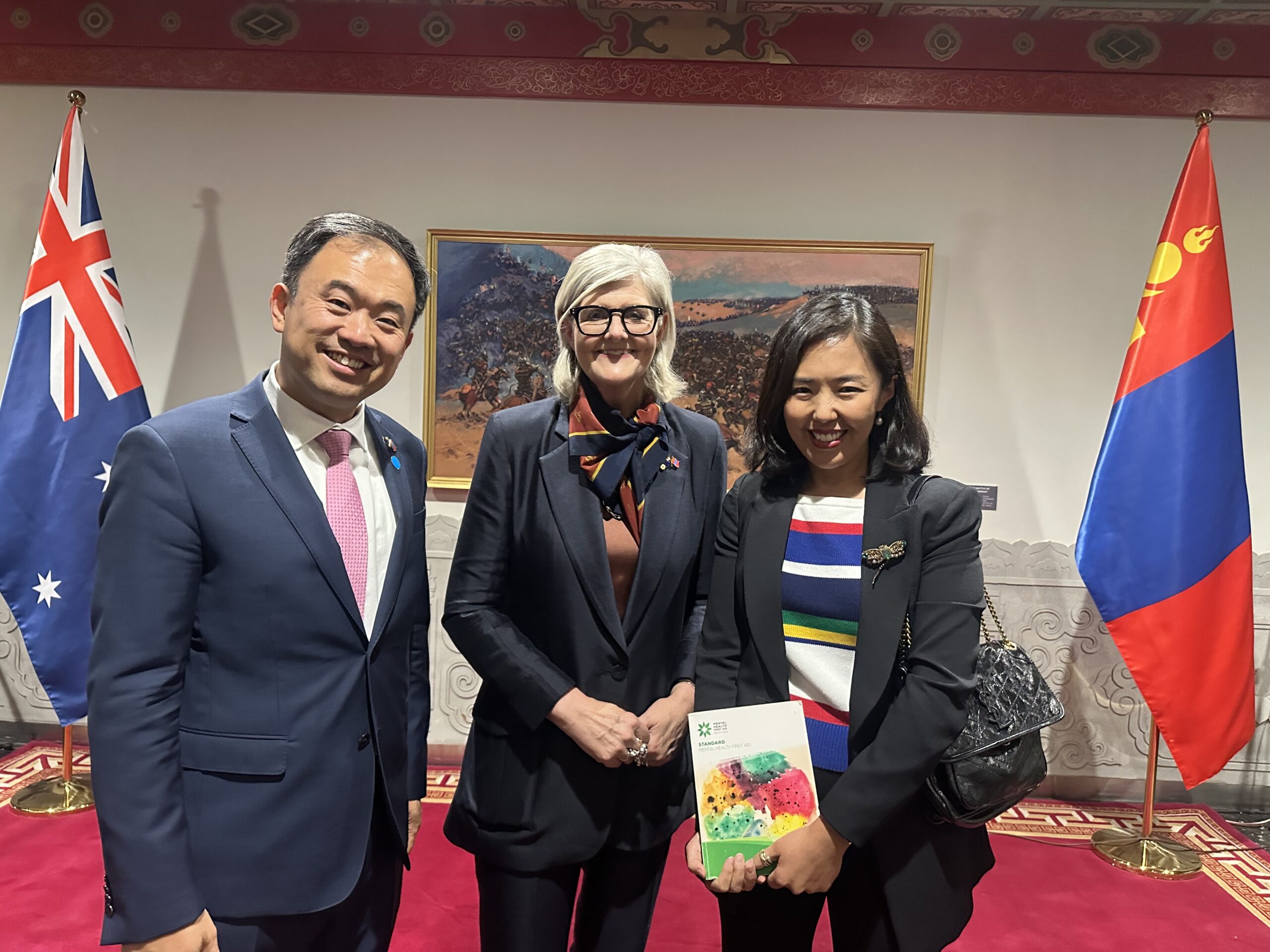10 September 2025: As the world marks World Suicide Prevention Day, Australian-based Mental Health First Aid International (MHFAI) welcomes Mongolia as the 46th country to adopt its program.
CEO Angus Clelland said Mongolia’s entry into the international Mental Health First Aid (MHFA) network is timely and vital, demonstrating Australia’s unique contribution to addressing the growing global mental health burden.
“MHFA Mongolia will help expand the reach of practical skills and peer-to-peer support that can save lives and strengthen communities,” Mr Clelland said.
The announcement comes ahead of the Australian Government delegation to the United Nations (UN) Assembly in New York later this month, where improving mental health in countries like Mongolia will be under the UN spotlight.
“This partnership amplifies our shared commitment to prevention, intervention, and community-led responses to meet global mental health needs, in line with previous UN calls to tackle mental health through prevention and early intervention programs,” added Mr Clelland.
The announcement also comes as the Australian Governor-General, Her Excellency Sam Mostyn AC, led a State Visit to Mongolia to strengthen relations and cooperation with Australia.
MHFA Mongolia was invited by the Mongolian Government to the Governor-General’s reception at the Australian Embassy this week, showcasing the Australian program’s introduction to the country.
MHFA Mongolia co-founders Munkhzul (Zula) Erdenedagva and Haliunaa Bat-erdene said: “We recognised a critical gap in Mongolia – that business leaders and managers in workplaces often lack the tools to care for their own mental health and support those around them.
“This gap is especially important given Mongolia’s high suicide rate – estimated at 17.33 per 100,000 by the World Health Organization – compounded by stigma, limited access to services outside urban centres, and a shortage of trained mental health professionals.
“Having undertaken MHFA training in Australia, we recognised that the structured, evidence-based MHFA training is essential for Mongolian workplaces, leaders, and communities. Launching the program in Mongolia this year in partnership with MHFAI has been an incredibly meaningful journey, and we’re just getting started,” they commented.

MHFA Mongolia co-founders Munkhzul (Zula) Erdenedagva and Haliunaa Bat-erdene signing MoU with the “Healthy Mongolian” national movement.


